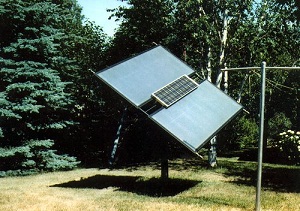Delaware gets greener
 Delaware, the first state, refuses to be left behind as states start to move toward renewable energy. In fact, with a new package of four renewable bills, focused to a large degree on solar growth in the state, it might just become the first in solar, too. Delaware Gov. Jack Markell (D) signed the package of bills into law on July 28.
Delaware, the first state, refuses to be left behind as states start to move toward renewable energy. In fact, with a new package of four renewable bills, focused to a large degree on solar growth in the state, it might just become the first in solar, too. Delaware Gov. Jack Markell (D) signed the package of bills into law on July 28.
With the legislation, Delaware instituted a stronger renewable portfolio standard (RPS). That means by 2025, 25 percent of all the electricity produced by energy suppliers in the state will come from solar, wind, and other renewable resources. Previously, it had an RPS goal of 19 percent by 2019. The new legislation places it among the states with the strongest RPS laws in the country, behind only California, Colorado, and Hawaii.
RPS standards are gaining in popularity. States see them as a great way to help reduce their emissions and develop new, long-term jobs. At the same time, renewables provide long-term pricing stability, particularly as the cost of wind power and solar and photovoltaic (PV) power continue to drop. Under the new RPS, the Delaware Electric Cooperative and municipal electric utilities, which provide about one-third of the energy produced in Delaware, will be covered.
Under the RPS, Delaware plans to install 250 megawatts of PV power by 2025. The state expects to produce hundreds of secure positions through the growth of PV. And, utilizing its coastal resources, the state could build 1 gigawatt of offshore wind power.
Another piece of legislation Markell signed into law strengthens the state’s net-metering rules, allowing homeowners to sell back 110 percent of their aggregate electric usage to the grid if they produce their own power. In addition, the bill will allow homeowners’ associations to cooperatively finance community-scale renewable energy projects.
The third law allows property owners to install ground-mounted solar energy systems on residential land where lots are one-half acre or larger, without being restricted by covenants, deed conditions, or other legalities that could restrict such installations.
The forth bill in the package allows the state to move forward on funding a backlog of green energy projects. Together, these bills go a long way toward making Delaware energy independent.



